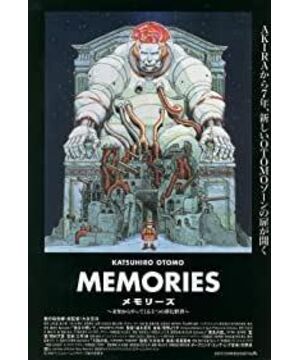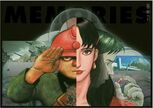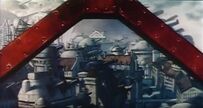However, since an article is published in the name of a film review, it is only reasonable to first explain some content related to the source of the article. Speaking of Dayou Keyang, those who know must be fans of mecha-manga-fans. The word "fan" is a bit heavy, and the classics and plays can't be recited. - From this, I will think of Oshii Mamoru, Anno Hideaki, Morimoto Koji and others. Even if many of these people's works are not regarded as classics, it is not an exaggeration to win a respectful praise.
"Trilogy of Memories" is a work from 1995. It contains three stories. I won't repeat the content. After all, I am a quiet and beautiful man who is too lazy to talk about generalizations. Regarding this work alone, my personal experience of the three stories is as follows:
The first "Her Memories", the play is outdated and old-fashioned, with nothing new. In fact, it is to extend the time axis of the tired origin. To put it bluntly, it is a person born in modern times who filmed a pair in the future. Memories of the past. However, there is always something worth saying under the scrutiny. The montage of memory and reality directly forms a series of highly contrasting images. The struggles of the two astronauts who have gone deep into the ruins to form an illusion are in themselves a contrast to each other. A young man's desire for the phantom songstress is compared with his own reality. The mediocrity of a middle-aged man's phantom torture compared to his happy family in reality, the memory of a dead actor many years ago compared with a mechanized hologram, these are the more obvious settings. And memory diffusion, or ideologicalization (in this place, special attention should be paid to punctuation, it is ideological/morphological), just as the spirit exists in all things in the world and is everywhere, and it drives people, whether it is a good presupposition or a bad one The result is an illusion. From "EVA", we have already seen the mecha religion of Anno ruffian. In "Ghost in the Shell: Innocence", Oshii Mori mentioned a popular story about Descartes in the nineteenth century: the old age Descartes made a machine doll that looked exactly like Francine, out of his thoughts for his daughter. Riman's mainstream mecha thought has never been a Cartesian mechanistic, but basically a dualist with both material and spirit, just like Hayek talked about in a book review I read a few days ago. I feel more and more that it is an inevitable result that human beings will eventually pursue religion when they are tired of technology. It is only a matter of time.
I never thought that I would say so much about the first story. This is against my original intention, so I must simplify it later.
The second "Stinky Weapon", which is the most absurd of the three stories, is full of black humor that should be seen while laughing. Speaking of this story, it is not difficult to think of the "Short Peace" also supervised by Otomo Keyo and Morimoto Koji in 2013. This work contains four stories respectively, and my interpretation of them revolves around the relationship between man and man-made objects. The content of the initial review is as follows: the first story - the reuse of man's response to his abandonment of creation; the second story - the strong backlash caused by man's abuse of his creation; the third story - Man, as a creation, is powerless to fear the owner of nature; the fourth story - the war and defeat between man and his creation. The words "temporary peace" are the best interpretation of the relationship between man and his creatures. In the story of "The Stinkiest Weapon", biochemical weapons, unconscious damage, and the destruction of small people are probably the keywords that best express its plot. This and the third story that follows are a true portrayal of the experience of the Japanese nation.
The third "Street of Cannons", this is the story that left the deepest impression on me. "Militarism" is a direct summary of the story. This is a heavy and repressed institutional world. The society as a whole lives in the environment set by itself, and the upper and lower thinking forms a deep-rooted axis. Everyone is performing task-style work in an orderly manner, making and firing artillery shells. Ordinary people and soldiers do not even know who their enemies are, but in fact there is no enemy at all. This group is only a small tribe in a vast land, but it is a completely closed tribe, and the operation of the whole country is like a machine. In fact, it is difficult to say whether such a state is good or bad for the people. The orderly operation makes everyone busy, although it is essentially meaningless, but it satisfies the psychological needs of the individual. In an open environment, it will lead to an infinite increase in entropy. The chaos that comes. The boundaries of governing a country and the line of serving the people are fundamentally different. From the perspective of the people, everyone is, but from the perspective of the state, no one is right. Management is a procedural work, and the state of the world is a consequentialist.
There is a poem in the north branch of Tachibana, no, it's a haiku: "The firefly glows intermittently, one bright and one extinguished for one foot, how can loneliness be worth it". The way of heaven is to leave the world and become independent, and the way of human beings is to join the world and become vulgar. God Allah, the few are not cynics, the old man is just a cultivator, Amen.
View more about Memories reviews









